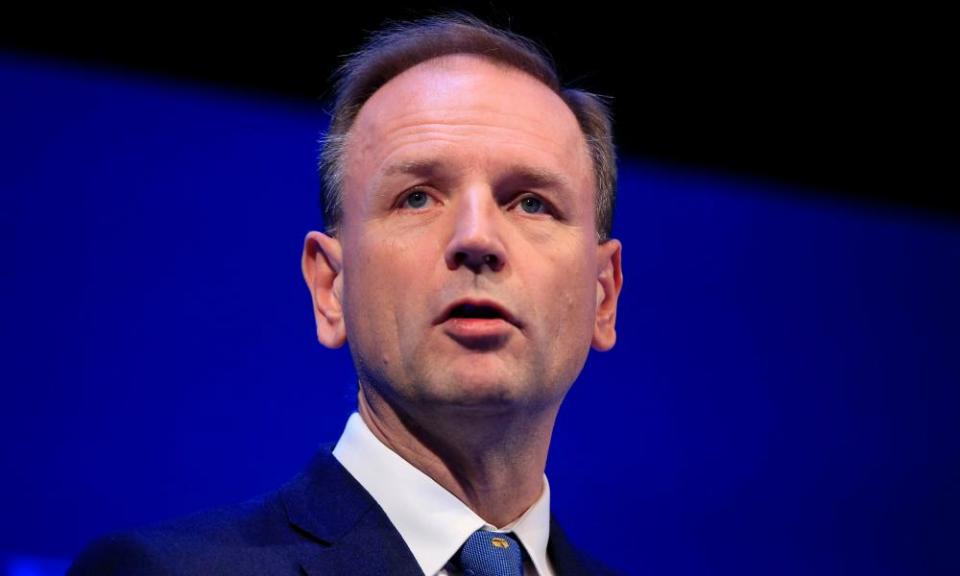NHS 'waving white flag' as it axes 18-week waiting time operation target

Patients will face longer delays for operations after the NHS decided to shelve one of its most important waiting time targets as part of its ambitious survival plan, which will also result in hundreds of thousands of people being denied surgery.
Simon Stevens, NHS England’s chief executive, has announced that the NHS is significantly relaxing the requirement on hospitals to treat, within 18 weeks, 92% of all patients in England who are waiting for a hip or knee replacement, cataract removal, hernia repair or other non-urgent operation.
The Royal College of Surgeons of England (RCSE) immediately accused the NHS of “waving the white flag on the 18-week target”.
A clampdown on surgery deemed of “limited clinical value” will affect people with certain spinal conditions, for example. Overall, a greater number of people with back pain will be treated with physiotherapy rather than surgery.
Stevens said rolling back the 10-year-old 92% target was necessary so that hospitals could concentrate on more urgent priorities, particularly in terms of easing the strain on overloaded A&E departments, as well as enhancing access to GPs and improving the treatment of cancer – diagnosis will be speeded up to 28 days – and mental health care.
The RCSE said the move risked going back to the time when patients faced excessive delays for surgery, leaving them to suffer in pain for even longer before finally undergoing necessary procedures.
“We are concerned that the 18-week waiting times target for surgical treatment has now effectively been jettisoned in all but name, having been dropped from the list of priorities for the next 12 months,” it said.
Clare Marx, the RCSE president, said: “It will be difficult for the general public to understand how waving the white flag on this target is compatible with a vision of an improved health service. We risk returning to the days of unacceptably long waits for elective surgical treatment.”
The move could see the number of people waiting for surgery within 18 weeks under the referral to treatment system going above 4 million for the first time since September 2007. The political importance of the target is likely to prompt criticism of Jeremy Hunt, the health secretary.
Stevens said: “We are saying that we expect that the number of operations that the NHS pays for will continue to go up, but we recognise that [while] right now about nine out of 10 people get their operations in under 18 weeks, in some parts of the country that will be under pressure.
“There is a trade-off here. We expect there will be some marginal lengthening of waiting lists, but this will still represent a strong, quick waiting times experience compared to 10 years ago, let alone 20.”

The British Medical Association claimed the NHS’s inability to meet all its waiting time targets showed that it was “at breaking point”. Its leader, Dr Mark Porter, said: “Achieving one delivery promise only by missing another is a textbook example of rationing access to care. It should not be happening in today’s NHS.”
Hunt insisted that the fact that hospitals were still giving around nine out of 10 patients elective care within 18 weeks, despite the huge demands being placed on them, was a sign of success, not failure. The NHS met the 92% target every month since its inception in April 2007 until December 2015, when performance was 91.8%.
However, medical bodies fear that watering down the 92% target will lead to a significant further jump in the number of patients forced to wait beyond the maximum 18 weeks guaranteed under the NHS constitution. Although the target is not being formally scrapped, in future NHS trusts will face no sanctions for failing to deliver on it.
Hospitals have already breached the target for the past 11 months and, in January, hospitals only achieved a 89.9% rate: 3.255 million people were treated on time but 364,218 were left waiting. Scores of hospitals across England had to declare large-scale alerts and convert gyms and other non-clinical areas into makeshift wards.
Chris Hopson, the chief executive of NHS providers, which represents most hospital trusts in England, welcomed Stevens’s move as proof of “greater realism” among NHS bosses. “But we do need to remember the impact on patients. The [NHS] plan reinforces a simple, stark truth: that you get what you pay for,” said Hopson.
NHS England’s 75-page delivery plan outlines how it intends to transform healthcare by 2020. The document makes repeated reference to how “modest” budget increases mean that it is unable to provide as much care or care within existing waiting times.
The plan makes clear that what critics call greater rationing of some types of care was imminent. GPs will be expected to refer fewer people to hospital and instead arrange treatment in the community. NHS England will expand the use of “referral management processes”, under which doctors assess whether patients need to go to hospital at all. More patients will be offered online advice.
Stevens announced that hospitals would be financially penalised if they did not screen patients who smoked or drank too much and refer them to tobacco or alcohol services, and said he was determined to reduce the wide variation in patients’ chances of being referred for certain surgery depending on where they lived in England.
Radical modernisation of how the NHS works is needed to ensure it survives as a service funded by general taxation that is free at the point of use, the document adds.
But Niall Dickson, the chief executive of the NHS Confederation, called the plan “a leap in the dark”, adding: “We have no alternative but to embark upon such fundamental change, but to do so when services are under enormous pressure and money is so tight is without precedent.”

 Yahoo News
Yahoo News 
